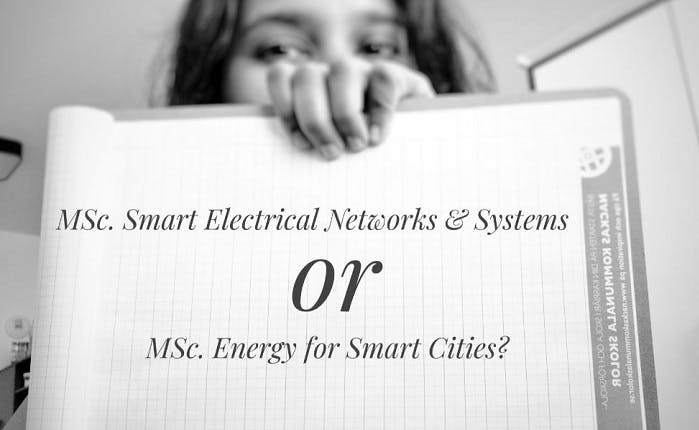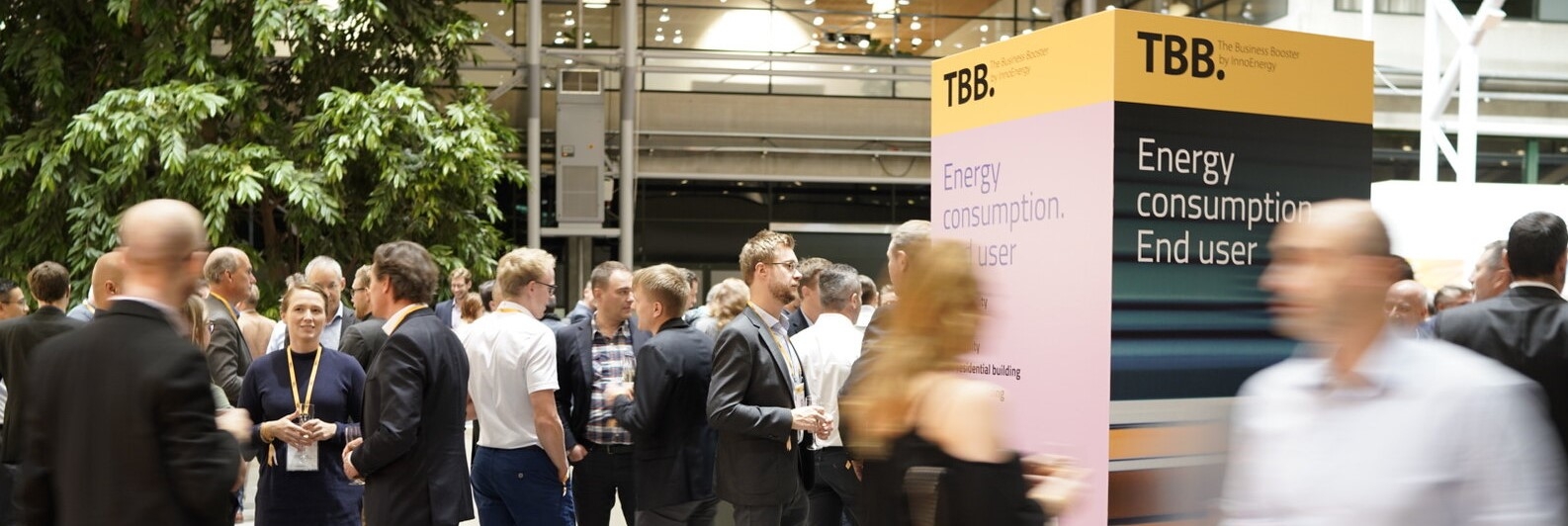InnoBlog: MSc. Smart Electrical Networks or MSc. Energy for Smart Cities?

As a continuation to my previous InnoBlog “Master’s in Renewable Energy or Master’s in Sustainable Energy Systems”, I have compared two other EIT InnoEnergy programmes that are very popular, but have a few subjects in common. The MSc in Smart Electrical Networks & Systems and the MSc in Energy for Smart Cities are programmes who attract many students with Both of the programmes emphasise on digitalisation, decarbonisation and integration at the grid and city levels.
While all the EIT InnoEnergy programmes are developed with the core idea of improving innovation in the clean energy sector, some value-added courses can differ based on the programme. Furthermore, all the Master’s programmes have different university affiliations. If you have an ideal university you have been wanting to attend, make sure to keep track of the Year 1 and Year 2 universities on the EIT InnoEnergy website, pertaining to your preferred programme!
MSc. Smart Electrical Networks and Systems
The electricity power grid plays a prominent role in aiding the transformation towards a cleaner and greener power sector. The Master’s programme is aimed at enhancing student’s knowledge to understand, design, implement and manage smart grids. Considering the novel field, the programme incorporates courses on entrepreneurship, product development, design thinking etc, to enable students to think outside the box and bring innovation in this field.
The first year is held in KTH Royal Institute of Technology in Stockholm, where the basics of power systems analysis, power electronics and other technical subjects are taught. Along with the mandatory courses, modules on digitalisation, energy efficiency and integration of renewables are taught by partner universities. Students get to meet the lecturers and learn first-hand, from the topic experts.
There is a mandatory innovation industrial project that is done by all students in the first year. Students work on real-world challenges, directly with the industrial partners such as Vattenfall, Stora Enso etc. The results of the projects are presented during the MEET event organised every year, which brings together Year 1 and Year 2 students of the Master’s in Smart Electrical Networks and Systems.
The second year is focussed on providing in-depth knowledge on the chosen field of specialisation. Technical specialisations include power electronics, distribution, storage integration etc, while general specialisations such as energy management in power grids are also offered. The university specific electives can be viewed on the EIT InnoEnergy website. This programme is overall technical from engineering perspective, with entrepreneurship and management courses offered to bridge the gap between technical and industrial knowledge.
MSc. Energy for Smart Cities
This Master’s programme focusses on urban planning and integration of energy systems in the cities. It imparts knowledge on renewable energy and smart grids, while working together with the architects of the cities to understand how innovative and sustainable solutions can be implemented in cities.
This programme covers a wider range of topics as compared to MSc. Smart Electrical Networks and Systems. The first year, at KTH or KU Leuven, has an open degree concept. The mandatory courses provide core knowledge on power electronics, renewable energy and energy management. The electives are offered from a wide range of faculties such as the school of Industrial Engineering & Management, Electrical Engineering & Computer Sciences, and Architecture & Built Environment. So, students can even take courses alongside other EIT InnoEnergy programmes such as Renewable Energy and Sustainable Energy Systems. The choices are plenty!
Overall, this programme ensures students have the basic understanding of every system in the complex nexus involved in smart city development. From energy to water management to waste reduction, the students get to choose from a very wide variety of topics.
Innovation & Entrepreneurship journey
Both these Master’s programmes offer an Innovation and Entrepreneurship Journeys in a unique way. In the MSc. Smart Electrical Networks and Systems, along with the industrial innovation project, students visit ESADE Business School in summer (4 weeks). Here, students attend highly interactive lectures, while working on an entrepreneurial project relating to innovation in smart grids. The goal of the project work is to create a start-up from ideation to first pitch to potential business angels. Guidance is provided all along the way, to create a customer-focused, market-oriented business and financial plan.
Additionally to mandatory course in innovation and entrepreneurship in electric-power engineering at KTH Royal Institute of Technology, during first year of studies students also attend several one-week modules at a number of our partner universities such as UPC, Grenoble INP and AGH.
For the MSc. Energy for Smart Cities programme, this journey is divided in two parts: Innovation Journey and Entrepreneurship Journey. During their Innovation Joureny (first year) students are divided in diverse teams and given the real-life challenges from the business partners of the year. The teams learn to not only ideate and innovate, but also submit a feasible business model to the jury. They are assessed 3 times in a year while visiting some of the smartest cities in Europe: 1 week in Barcelona, 1 week in Antwerp and 1 week in Amsterdam. This bring huge networking and learning opportunities for students, preparing for the next year.
During the Entrepreneurship Journey (year 2), students submit their start-up proposal to the journey managers. Similar to the first year, students go through a 3-week training, assessment and feedback rounds. This time, the learning is oriented towards market validation, funding strategies, investor pitch, go-to-market strategy etc, to bring their ideas closer to reality. Moreover, the network opportunities with the local start-up incubation programs across Barcelona, Antwerp and Amsterdam further brings them opportunities to participate in incubation and/or accelerator programmes that can serve as a launchpad for their start-up. It is unlike of any other Master’s programme to provide knowledge and such practical skills at the same time. There is a huge value for students in such learning style.
Overall, both programmes try to make students independent thinkers and enable them to visualise projects and products that are economical and suitable for large scale deployment.
Job opportunities
This part is the most subjective of all since it depends on the students’ career interests. While there is no specific job that ONLY prefers students from one of the programmes, the following are roles that are popular in both fields:
- Energy data analyst
- Product/Project manager (smart grid services, grid flexibility services)
- Engineer at electricity utilities, grid operators, transmission companies
- Innovation & business development (for energy start-ups and MNCs)
- Electrical engineer (e-mobility, energy storage start-ups and MNCs)
All-in all, both programmes are tailor-made to provide students with adequate knowledge and industry experience to make them ready for the workforce. Each programme has its own unique selling point and ultimately the decision is yours to make, based on the information provided in this blog!
By Malavika Venugopal, EIT InnoEnergy Master School student
Want to develop the engineering and entrepreneurial skills needed to understand, design, implement and manage smart grids? Join our students from Master’s in Smart Electrical Networks and Systems who will reveal how you can launch an exciting career in electrical engineering!
InnoTalks: Master’s in Smart Electrical Networks and Systems
17 November, 15.00 CET
Register here.

